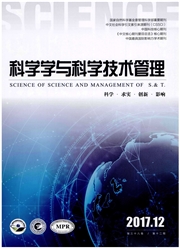

 中文摘要:
中文摘要:
认同研究起源于社会心理学领域,又在组织行为学范畴得到发展。鉴于服务的无形性、生产与消费的不可分割性及易逝性特征,将认同理论纳入B2C的服务情境中,构建了顾客—企业认同与企业层面、员工层面驱动因素之间的关系模型,同时考察了顾客价值与顾客满意作为中介变量的作用。研究发现,企业识别直接正向影响CCI,企业形象通过顾客满意间接正向影响顾客—企业认同,企业沟通在直接正向影响CCI的同时,还通过顾客价值间接正向影响顾客—企业认同,服务员工的顾客导向意识分别通过顾客价值和顾客满意间接正向影响顾客—企业认同。因此,服务企业的管理者应当有机地整合企业层面和员工层面的影响因素,强化顾客对企业的认同感,借以构建独特的竞争优势。
 英文摘要:
英文摘要:
Identification research originated from the area of social psychology and developed in the area of organizational behavior is the very first stage in the field of customer relationship management. Because services have these basic characteristics of intangibility, inseparability, and perishability, it is very important for service companies to build deep, meaningful, long-term relationships with their customers by way of customer-company identification. This paper develops and tests a research model in which service company-level and service employee-level antecedents affect customer-company identification respectively, and at the same time the mediating effects of customer value and customer satisfaction are taken into account. Overall,each antecedent is important, albeit through different processes. Among them, corporate identity is positively related to CCI directly. Corporate image positively affects CCI via customer satisfaction indirectly. Corporate communication positively impacts CCI via customer value indirectly, as well as directly. COSE is positively related to CCI via customer value and customer satisfaction respectively.
 同期刊论文项目
同期刊论文项目
 同项目期刊论文
同项目期刊论文
 期刊信息
期刊信息
